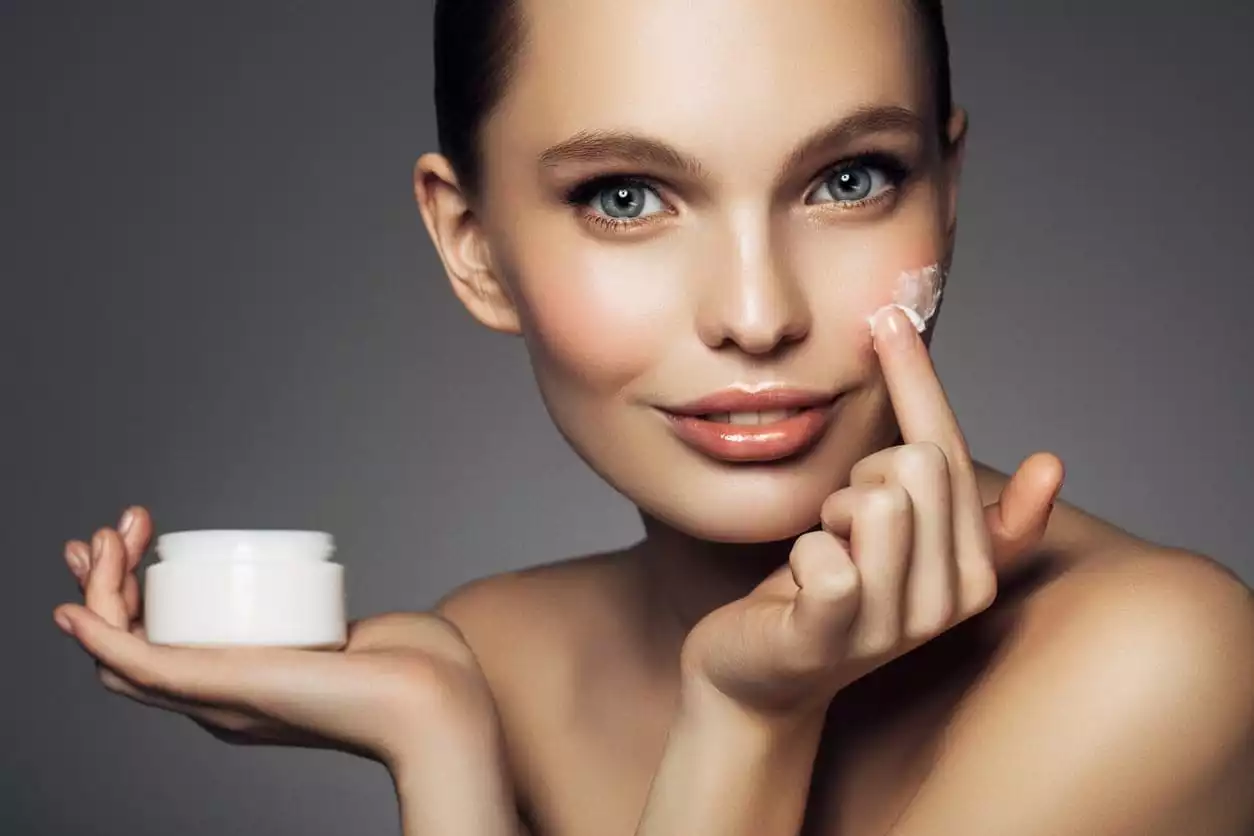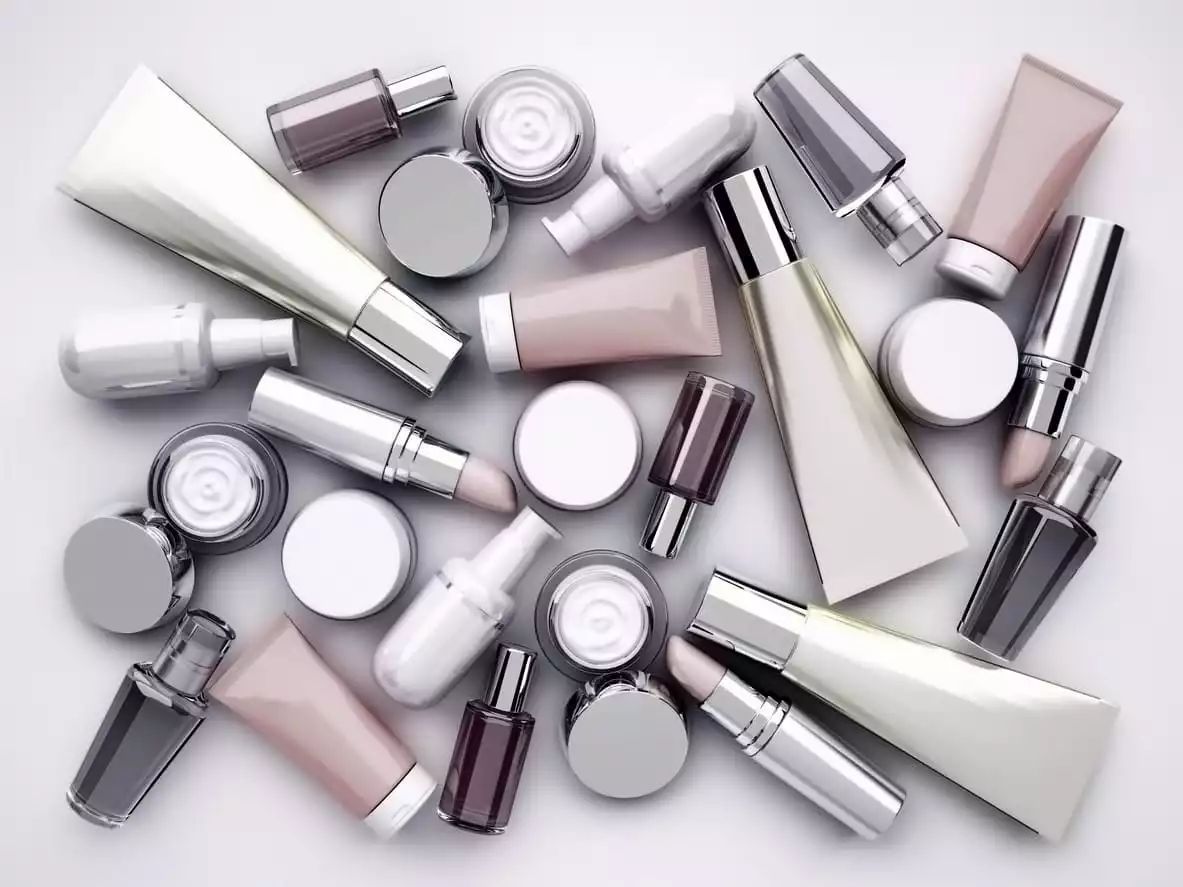
Dry skin is a common issue during the winter months; and there can be many reasons behind it. Regardless, compounded cosmeceutical skin care products can help.
Tis the season for dry, itchy skin.
People with eczema, psoriasis, allergies, and other skin conditions often see their conditions worsen during the cooler winter months; itchiness seemingly amplifies to almost intolerable levels.
No fun!
Winter is a tough time of year (in general)… but you still deserve to look and feel your very best all season long.
If you’re struggling with your skin, help is on the way!
You can now choose from a wide variety of compounded cosmeceutical products containing ingredients designed to soothe your skin – and some of them can even be tailored to your unique needs.
What Are Cosmeceuticals?
Cosmeceuticals are cosmetic products that claim to have certain healing properties.
You very often see products that make anti-aging claims, but some brands claim to have a specific action for certain skin conditions, too.
- These formulas may contain biologically-active ingredients believed to have drug-like effects and properties.
- Others just contain contain ingredients the FDA classifies as drugs, such as steroids or vitamin D analogues.
Feeling confused? Like any other medicated product, it’s best to speak with your pharmacist if you have questions.
Just remember this — the “cosmeceutical” label does not automatically mean your products are recognized as pharmaceutical drugs.
Cosmetic Ingredients to Look For
Dry skin needs a little extra love, starting with your cleansing products and including your moisturizers and any other lotion, cream, or serum you put on your skin.
In fact, the type of formula you use can make a big difference in how your skin looks, feels, and holds up to harsh winter weather.
What does this mean for you?
Ultimately, you should consider the ingredients within your favorite cosmeceuticals.
Here’s a few of the most common:
- Polysorbate– The “85” and “60” versions of this ingredient are commonly found in cleansers. Both break up excessive skin and produce oils to easily spread them across the surface of the skin, allowing for efficient distribution.
- Triethylhexanoin – A skin conditioner containing a mixture of fatty acids and glycerine. Highly moisturizing.
- Coconut Oil – Extracted from the coconut seed itself, it’s delicious and soothing when applied to dry skin. It’s often paired with sesame, almond, jojoba and other plant-based oils for a cumulative effect.
- Hyaluronic Acid – A naturally-occurring substance commonly found in anti-aging products. It plumps the skin and stimulates collagen production, found mostly in the serums and moisturizers you wear under your makeup.
- Glycerine – Glycerine is a natural plant and animal product, but can also be synthetically created. Both synthetic and non-synthetic forms pull moisture from the air and trap it in your skin.
- Retinol – This Vitamin A molecule is one of the best antioxidant vitamins you can apply to aging or dry skin. It promotes cellular growth and helps to correct damage. Retinol penetrates skin deeply, making it perfect for healing both the outer layers and deeper layers of the dermis.
- Grape Seed – Grape seed, often used in oil form, contains vitamins E and C, both of which have well-known antioxidant properties. Cosmeceutical companies often include it in cleansers and moisturizers as an extract or powder. Some researchers even believe grape seed extract has sunscreen properties.
- Hydroxyl Acids – Also known as Alpha or Beta Hydroxy Acids, these substances firm and tighten skin to make it appear more youthful. They also help to loosen up dead skin cells so they’re easier to exfoliate. Common hydroxyls include glycolic acid, lactic acid, mandelic acid, citric acid, and salicylic acid.
The cosmeceuticals on this list are far from your only options.
Others you may find beneficial include:
- Pomegranate
- Soy
- Depigmenters
- Estrogens and other hormones
- Polyphenol antioxidants
- Aloe vera
- Curcumin
- Coenzyme Q-10
Drying Ingredients to Avoid
Compounded cosmetics are generally created individually for each patient, which can be extremely beneficial.
You get instant access to specific needed ingredients without being forced to include other substances that may aggravate your dry skin or other related conditions.
Not sure what you should avoid?
Try this list of common problem ingredients to ensure you have the best chance of staying well.
- Isopropyl alcohol – This form of alcohol causes water to evaporate faster than usual. It is extremely drying.
- Sodium lauryl sulfate – SLS strips natural oils from the skin. It has also been linked to cancers, endocrine disorders, and other diseases, and may trigger allergies in sensitive patients.
- Sodium laureth sulfate – This ingredient is only slightly less drying than sodium lauryl sulfate. You’re not really missing out by avoiding either of these sulfate ingredients as they generally only provide a lathering effect. It, too, can trigger allergies in sensitive patients.
- Salicylic acid – This is an ingredient commonly used to treat adult acne, but it shouldn’t be used between flare-ups. Overuse can lead to red, peeling, and sensitive skin.
- Sodium chloride – Used in moderation, sodium chloride can soften the skin, but too much of a good thing applies here. Regular and excessive use can have a drying effect. It’s best to avoid this ingredient if you have chronic dry skin issues.
Custom Compounded Cosmetic Skin Care
There is always a bit of trial and error involved in creating custom cosmeceutical products.
Your compounding pharmacy is capable of keeping track of the ingredients to create your personalized blends so you can add or subtract ingredients to find the right balance.
One of the main benefits of compounded cosmetics is a reduction in the number of products you use each day.
Your pharmacist may, for example, be able to mix the following into one lotion:
- A sunscreen
- Moisturizer
- Retinol treatment into one lotion
This eliminates the need for three separate lotions and serums and reduces reduces drying and application time. It’s not really any different in effect, but it does let you get through your daily routine faster.
Benefits of Compounding Skin Care
Another benefit of compounding: your compounding pharmacy can create a custom cosmetic blend with more active ingredients and fewer fillers.
Most of the allergic reactions caused by cosmetics come from the cheap fillers used to hold them together rather than the active ingredients themselves.
A personalized approach to treatment is also just better for individual patients.
Cookie cutter solutions rarely fit every patient perfectly; in few other areas is this as much the case as it is with sensitive skin and skin conditions.
Your pharmacist is your best ally in the adventure of finding ways to look and feel your best without risking a flare-up of conditions like psoriasis, rosacea, and irritation.
Conclusion
Have a specific skin condition? Ask your compounding pharmacy to step in.
They can include some of the properties of your favorite everyday moisturizer with the medicated or extra-hydrating ingredients you need to keep conditions like these at bay.
They can also blend in “cosmetic” anti-aging ingredients within the same product, making it easier to achieve all of your goals in one shot.
There’s nothing fun about dry, itchy skin.
Whether it’s a product of the season or an ongoing health issue, talk to your doctor or dermatologist and your pharmacist about your skin condition and how to best treat it.
You may just find the perfect blend of two or three different components — something completely unique to you — is exactly what you need to nip annoying symptoms in the bud.

 info@burtsrx.com
info@burtsrx.com

